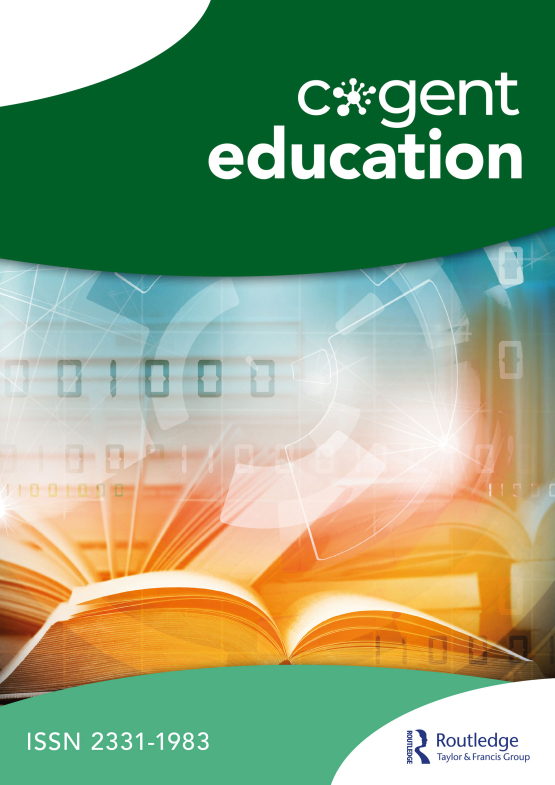Submit a Manuscript to the Journal
Cogent Education
For an Article Collection on
Alternative Placements in Special Education: Rationale, Research, and Meanings of Inclusion
Manuscript deadline
04 October 2024


Article collection guest advisor(s)
James M. Kauffman,
University of Virginia
[email protected]
Garry Hornby,
University of Plymouth
[email protected]
Dimitris Anastasiou,
Southern Illinois University
[email protected]
Alternative Placements in Special Education: Rationale, Research, and Meanings of Inclusion
Inclusion has become a major controversy in education worldwide, as indicated by anecdotal evidence and recent publications, including those of the United Nations. Chief among the controversies is whether general education can be so transformed that it meets the needs of all students, including all those with special educational needs and disabilities (SEND). The full inclusion movement (FIM), in which all separate placements of students with SEND are proscribed (frequently called "segregated" rather than "dedicated" environments) now hold sway in many nations of the world, though its full implementation is found in none. The issue is not whether placement of students with SEND in general education is ever appropriate but whether it is always appropriate and, if not always, the conditions under which it is or is not and the proper procedures for determining placement of SEND.
Placement of students with SEND is important in ensuring the best possible education for all students, including those with SEND, in all nations. In the United States, placement is an important legal question, given federal law requiring an individual education program (IEP), with choice of the least restrictive environment (LRE) from a continuum of alternative placements (CAP) for the purpose of achieving a free appropriate public education (FAPE) for students with SEND. In all nations, the issue is whether inclusion in appropriate instructional activity or placement (i.e., location) in general or regular classrooms should be the priority.
Articles submitted for this collection on alternative placements of students with SEND may include these or any combination thereof:
- Research involving alternative placements and/or statements about inclusive practices
- Reviews of research regarding alternative placements of students with SEND
- Analyses regarding law and alternative placements of SEND
- Rationale for or opinion regarding alternative placements for education of SEND
- Analyses regarding law and alternative placements of SEND
- Rationale for or opinion regarding alternative placements for education of SEND
All manuscripts submitted to this Article Collection will undergo a full peer-review. Please review the journal scope and author submission instructions prior to submitting a manuscript.
The deadline for submitting manuscripts is 04 October 2024.
James M. Kauffman is Professor Emeritus of Education at the University of Virginia, where he joined the faculty of the School of Education in 1970. His Ed.D. is from the University of Kansas. He has been a classroom teacher and has published widely in special education and related fields. https://www.jmk9t.com
Garry Hornby worked as a mainstream and special class teacher then as an educational psychologist. He has lectured in special and inclusive education at universities in England, New Zealand and Barbados and became Emeritus Professor in 2018. https://www.plymouth.ac.uk/staff/garry-hornby
Dimitris Anastasiou is a Professor of Special Education at Southern Illinois University. He holds B.S. degrees in psychology, sociology, and elementary education, M.Sc. in school psychology, and a Ph.D. in special education and school psychology. His scholarly interests include learning disabilities, disability rights, educational and disability policy, and comparative special education. https://academics.siu.edu/education/special-education/faculty/anastasiou-dimitris.php
Disclosure Statement
Dr. Kauffman, Dr. Hornby, and Dr. Anastasiou have no conflict of interest to disclose.
Benefits of publishing open access within Taylor & Francis
Global marketing and publicity, ensuring your research reaches the people you want it to.
Article Collections bring together the latest research on hot topics from influential researchers across the globe.
Rigorous peer review for every open access article.
Rapid online publication allowing you to share your work quickly.
Looking to Publish your Research?
Find out how to publish your research open access with Taylor & Francis Group.
Choose open accessSubmission Instructions
All manuscripts submitted to this Article Collection will undergo desk assessment and peer-review as part of our standard editorial process. Guest Advisors for this collection will not be involved in peer-reviewing manuscripts unless they are an existing member of the Editorial Board. Please review the journal Aims and Scope and author submission instructions prior to submitting a manuscript.